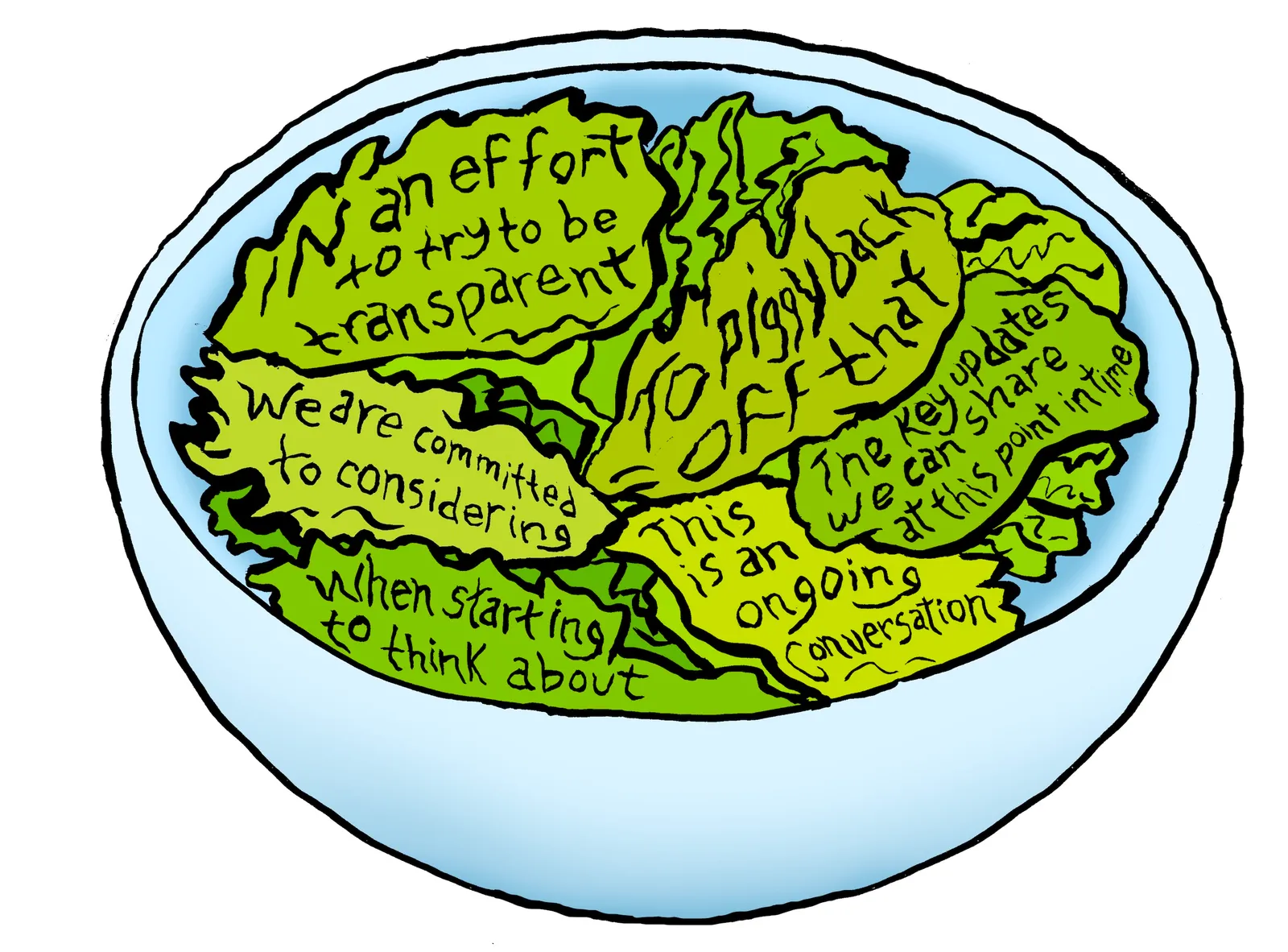What Is Word Salad? Understanding This Confusing Phrase and How It Affects Communication
word salad is a term used to describe a jumble of words that don’t make sense when put together. You might hear it when someone is talking, but their words seem all mixed up, making it hard to understand the message. It’s like trying to read a puzzle with the pieces in the wrong order. Word salad can happen in conversation, writing, or even in your thoughts.
In many cases, word salad is linked to conditions like speech disorders or mental health issues. But don’t worry, we’re here to explain what word salad is, how it happens, and how to spot it. If you’ve ever had trouble understanding someone’s speech or written work, you might have encountered word salad without realizing it.
What Is Word Salad? Understanding This Confusing Language Phenomenon
Word salad is when words are mixed up in a way that doesn’t make sense. It’s like when someone tries to speak, but their words don’t connect or follow a clear idea. Imagine trying to read a page full of random words that don’t belong together. It can be frustrating, right? That’s what word salad feels like in communication.
People who speak in word salad might jumble their words or use random phrases that don’t seem to go together. This can happen in conversations or even in writing. While it can sound confusing, it’s important to know that word salad isn’t always a choice. It can be a sign of certain health issues, but more on that later.

The Causes Behind Word Salad: Why Do Words Sometimes Get Jumbled?
Word salad can happen for many reasons. Some people may experience it due to medical conditions like a stroke or brain injury. These conditions can affect the brain, making it hard to find the right words or put them together correctly.
Another cause can be mental health conditions like schizophrenia. When someone has schizophrenia, their thoughts might not flow properly, leading to word salad. It’s also seen in people with Alzheimer’s or other types of dementia, where confusion and memory loss interfere with speech.
Word Salad and Mental Health: How It Can Affect Communication
Word salad is often seen in people who struggle with certain mental health issues. Schizophrenia is one of the most common mental health conditions where people might speak in word salad. Their words don’t form clear sentences or thoughts, making it tough to understand them.
People with serious anxiety or stress might also speak in ways that seem jumbled. Their minds race with too many thoughts, and this can result in word salad. It’s important to recognize that these people are not doing it on purpose – it’s just how their minds are processing information at that moment.
How to Spot Word Salad in Everyday Conversations and Writing
Spotting word salad is easier once you know what to look for. In conversation, you might hear someone say sentences that don’t follow a logical order or sound like random words thrown together. This can make the meaning unclear or hard to understand.
In writing, word salad looks like a collection of sentences that don’t make sense. Words might be placed in a confusing way, leaving the reader puzzled. If you’re unsure whether something is word salad, try reading it again or asking the person to clarify what they mean.
Word Salad in Popular Culture: Examples You Might Have Missed
Word salad isn’t just something that happens in real life – it also appears in movies, TV shows, and books. Characters with certain mental health conditions or brain injuries often show signs of word salad in their speech. For example, in films about mental illness, you might see characters struggling to express their thoughts clearly, with their words coming out all jumbled.
These portrayals can help raise awareness of the challenges people face when dealing with conditions that cause word salad. It’s important to remember that these representations should be accurate and respectful, showing the struggle these individuals go through in everyday life.

Is Word Salad a Sign of a Serious Issue? When Should You Be Concerned?
If you or someone you know experiences word salad, it can sometimes be a sign of a bigger health problem. When it’s not just a one-time mistake, but happens frequently, it might be time to talk to a doctor or a healthcare professional.
- If word salad happens after a head injury, it’s important to get checked by a doctor.
- If the person seems confused or forgetful, and their speech is unclear, this could be a sign of dementia or another condition.
- When word salad appears suddenly, especially in someone who hasn’t experienced it before, it’s a good idea to seek medical help.
Even though word salad can be linked to mental health issues, it doesn’t always mean there’s a serious problem. The key is to watch for patterns and speak with a professional to be sure.
When to Talk to a Doctor About Word Salad:
- Sudden changes in speech or thought patterns
- Difficulty forming sentences or expressing ideas
- Confusion or forgetfulness in speech
How to Communicate Clearly and Avoid Word Salad in Your Own Speech
If you find that you sometimes struggle with word salad, don’t worry – there are ways to improve your communication. One helpful method is to slow down your speech and think about what you want to say before speaking. Taking a pause gives your brain a moment to organize your thoughts.
If you have a health condition that affects your ability to speak clearly, speech therapy can be a huge help. Therapists can work with you on exercises to improve word recall and sentence formation, making it easier to communicate with others.
Can Word Salad Be Treated or Fixed? Solutions and Tips
Word salad can be treated, depending on the cause. If it’s related to a medical issue like a stroke, speech therapy and rehabilitation might help a lot. For people with mental health conditions, therapy and medication can help clear up confusion and improve communication skills.
- Speech therapy: This can help improve how words are spoken and put together.
- Medication: If word salad is linked to a mental health issue, medication can help manage the condition and reduce symptoms.
- Brain exercises: Some people find that mental exercises and games can help improve clarity in thinking and speaking.
The sooner you seek help, the better, as it can prevent the issue from becoming more difficult to treat.
Word Salad in Kids: What Parents Should Know About Speech Development
Word salad can also appear in young children as they learn to speak. It’s common for kids to mix up words or not be able to say things clearly. However, this usually happens because their language skills are still developing. Over time, as children grow and practice, they will be able to form clearer sentences.
If you notice that your child is regularly mixing up words or can’t make sense when speaking, it’s important to keep an eye on their progress. If it doesn’t improve by a certain age, you might want to talk to a pediatrician or speech therapist to make sure everything is on track.
Tips for Parents:
- Encourage your child to talk by asking open-ended questions.
- Practice speech exercises with them, like repeating words and simple sentences.
- Seek professional help if word salad persists or worsens over time.
Conclusion,
word salad is when words get mixed up in a way that doesn’t make sense. It can happen for many reasons, like brain injuries, mental health issues, or even when someone is really stressed out. While it can be confusing to hear, it’s important to understand that it’s not something people do on purpose. If you ever hear someone talking in word salad, remember it might be because they’re having trouble with their thoughts or speech.
If you or someone you know starts speaking in word salad a lot, it’s a good idea to talk to a doctor. Sometimes it’s a sign that something bigger is going on in the brain or with mental health. The good news is that with the right help, like speech therapy or medicine, people can get better at communicating. So, if you notice any changes, don’t hesitate to reach out to a professional for advice and support!














Post Comment